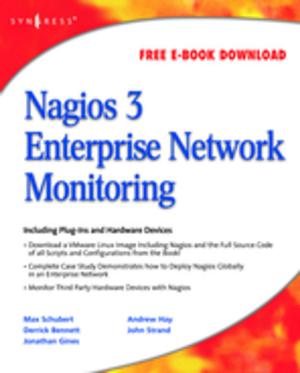Managed Code Rootkits
Hooking into Runtime Environments
Nonfiction, Computers, Networking & Communications, Computer Security, Operating Systems, Application Software| Author: | Erez Metula | ISBN: | 9781597495752 |
| Publisher: | Elsevier Science | Publication: | November 25, 2010 |
| Imprint: | Syngress | Language: | English |
| Author: | Erez Metula |
| ISBN: | 9781597495752 |
| Publisher: | Elsevier Science |
| Publication: | November 25, 2010 |
| Imprint: | Syngress |
| Language: | English |
Managed Code Rootkits is the first book to cover application-level rootkits and other types of malware inside the application VM, which runs a platform-independent programming environment for processes. The book, divided into four parts, points out high-level attacks, which are developed in intermediate language.
The initial part of the book offers an overview of managed code rootkits. It explores environment models of managed code and the relationship of managed code to rootkits by studying how they use application VMs. It also discusses attackers of managed code rootkits and various attack scenarios. The second part of the book covers the development of managed code rootkits, starting with the tools used in producing managed code rootkits through their deployment.
The next part focuses on countermeasures that can possibly be used against managed code rootkits, including technical solutions, prevention, detection, and response tactics. The book concludes by presenting techniques that are somehow similar to managed code rootkits, which can be used in solving problems.
- Named a 2011 Best Hacking and Pen Testing Book by InfoSec Reviews
- Introduces the reader briefly to managed code environments and rootkits in general
- Completely details a new type of rootkit hiding in the application level and demonstrates how a hacker can change language runtime implementation
- Focuses on managed code including Java, .NET, Android Dalvik and reviews malware development scanarios
Managed Code Rootkits is the first book to cover application-level rootkits and other types of malware inside the application VM, which runs a platform-independent programming environment for processes. The book, divided into four parts, points out high-level attacks, which are developed in intermediate language.
The initial part of the book offers an overview of managed code rootkits. It explores environment models of managed code and the relationship of managed code to rootkits by studying how they use application VMs. It also discusses attackers of managed code rootkits and various attack scenarios. The second part of the book covers the development of managed code rootkits, starting with the tools used in producing managed code rootkits through their deployment.
The next part focuses on countermeasures that can possibly be used against managed code rootkits, including technical solutions, prevention, detection, and response tactics. The book concludes by presenting techniques that are somehow similar to managed code rootkits, which can be used in solving problems.
- Named a 2011 Best Hacking and Pen Testing Book by InfoSec Reviews
- Introduces the reader briefly to managed code environments and rootkits in general
- Completely details a new type of rootkit hiding in the application level and demonstrates how a hacker can change language runtime implementation
- Focuses on managed code including Java, .NET, Android Dalvik and reviews malware development scanarios















